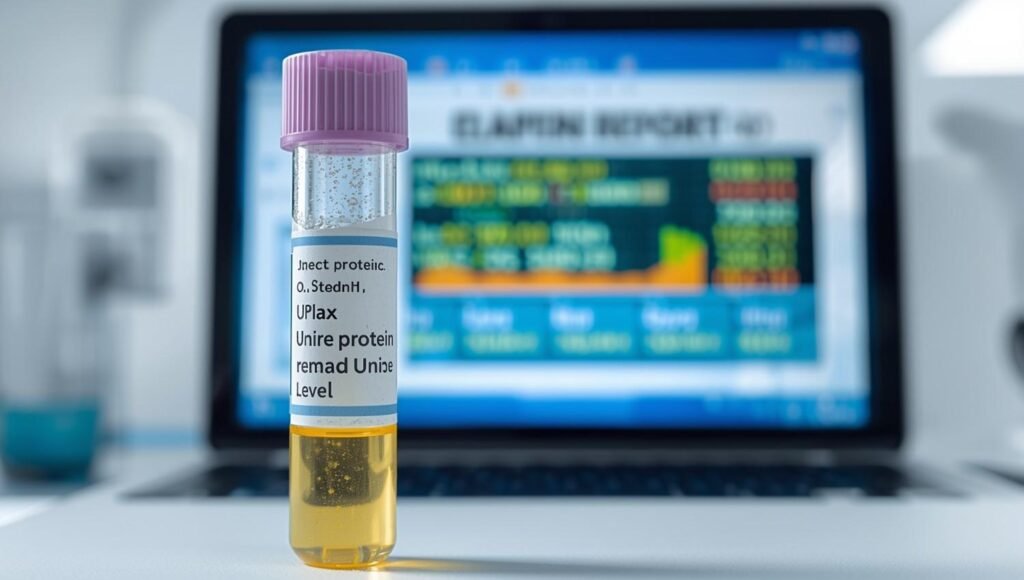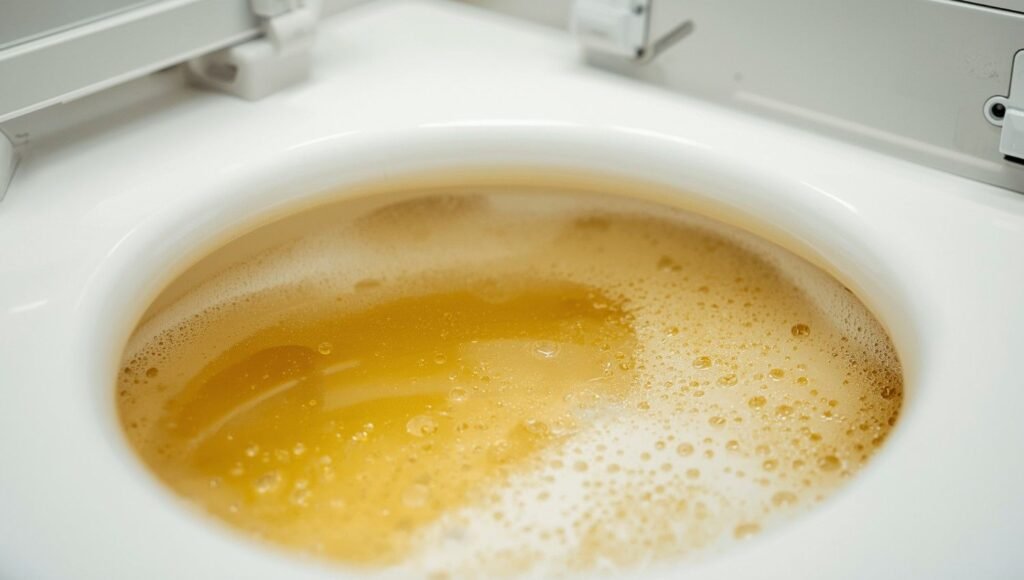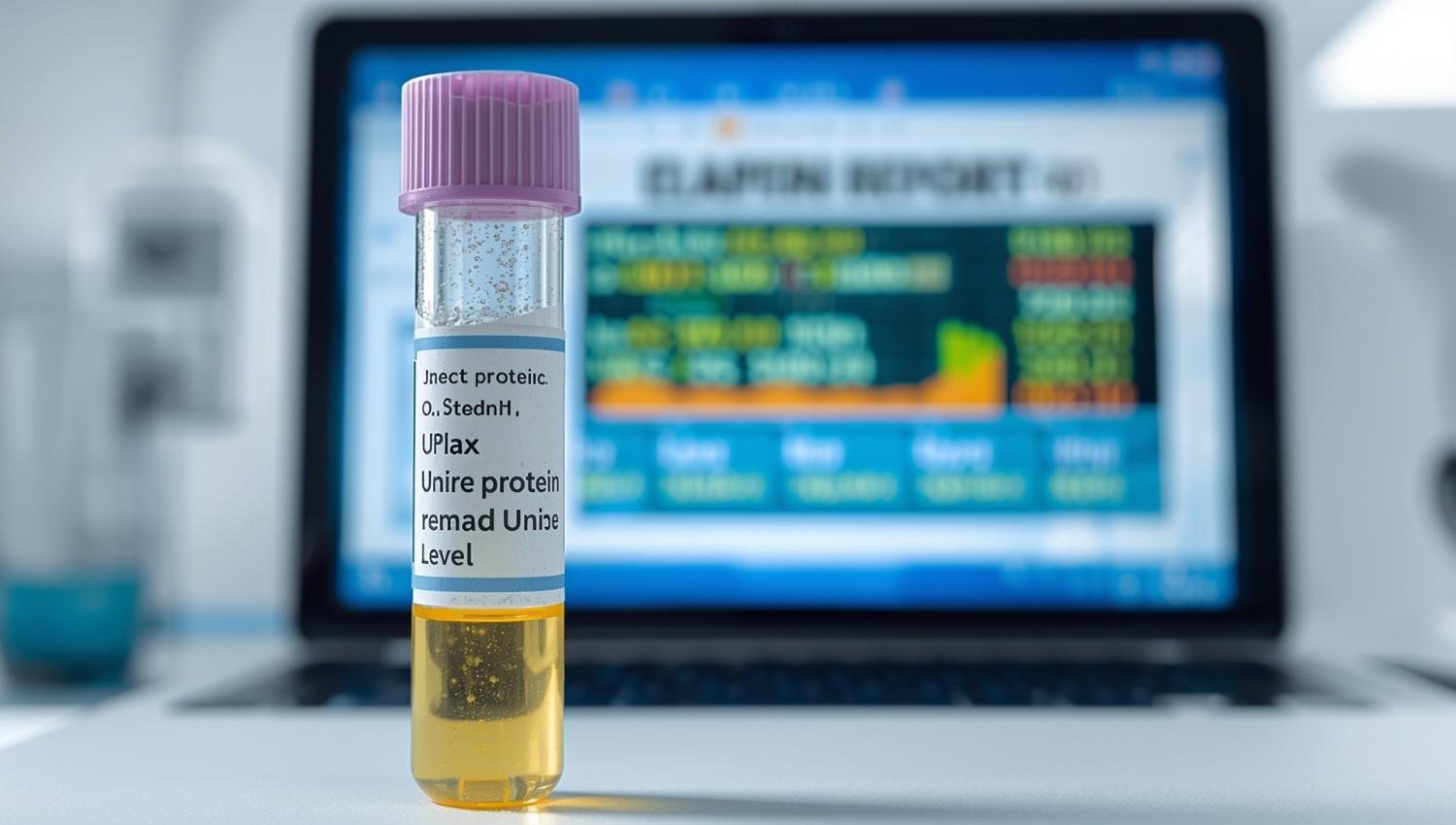Understanding Proteinuria in Pregnancy
When I first heard about protein in urine during my own pregnancy, I felt the same anxiety many pregnant women experience. Doctors call this condition proteinuria, which means there’s an unusual amount of protein in your urine. Sometimes it’s harmless — a temporary rise caused by stress, fever, heavy workout, or if you perspire too much and get dehydrated. However, for a mom-to-be, this symptom can also point to urinary tract infections, diabetes, or kidney problems. I remember my doctor in Houston, at the Houston Kidney Specialists Center, saying that even microscopic traces of urine protein can tell a lot about kidney function and overall health.
When proteinuria appears along with high blood pressure, it could be a sign of preeclampsia — a blood pressure complication that can affect both the mother and the developing baby. I’ve met many pregnant moms in Cypress, Texas, who were relieved to learn that with good care, diet, hydration, and proper prenatal visits, they could stay healthy and keep their babies safe. Regular urine tests during prenatal visits give clarity and reassurance, helping parents stay calm through this journey. It’s amazing how a simple urine sample and medical attention from a trusted healthcare professional can turn fears into peace, especially when faced with the unknown.
What Happens to Kidneys During Pregnancy? Fluid Dynamics and Silent Adaptations

During pregnancy, the kidneys quietly recalibrate to handle new responsibilities. These vital organs increase their filtration rate to manage the greater blood volume flowing through the body. This natural adaptation—known as hyperfiltration—helps support life, ensuring both mother and baby get what they need. However, this extra work can make the kidneys a bit overwhelmed, sometimes allowing small amounts of protein or albumin to leak into the urine, usually around 250–300 mg in 24 hours. It’s a normal part of the body’s adjustments unless it crosses the threshold signaling stress.
Most of these changes remain silent, without pain or visible change. That’s why doctors use routine urine screening during prenatal care—a simple test strip under a clinical eye can detect even subtle symptoms before they become serious. These silent adaptations remind us that the body, though under stress and discomfort, is working tirelessly to support life in every possible way.
Types and Causes of Proteinuria: One Symptom, Many Origins
When protein shows up in urine during pregnancy, it can come from many origins—some benign, others needing medical attention. Normally, the kidneys filter waste products from the blood, keeping useful proteins the body needs to thrive. But when this filtration process is affected, protein that should stay in the blood gets filtered out and released in the urine. Sometimes, this elevated level results from emotional stress, physical stress, strenuous exercise, dehydration, fever, or extreme temperatures—conditions that cause transient proteinuria, a short-term and physiological response. Orthostatic proteinuria, where protein appears only when standing upright and not lying down, is another benign pattern. These momentary blips usually return to normalcy once the body rests and rehydrates.
However, pathological proteinuria signals deeper health conditions like preeclampsia, chronic kidney conditions, lupus, or diabetes. In pregnancy, proteinuria can be a key indicator of preeclampsia, a condition tied to high blood pressure, affecting vital organs like the liver and kidneys. Severe forms, such as HELLP syndrome—which involves hemolysis, liver enzymes, and low platelet count—demand urgent treatment to prevent complications for both mother and baby. Sometimes, factors like urinary tract infection, heart disease, medications, obesity, genetics, twins, or maternal age can also influence protein levels in urine. Doctors monitor protein gradients and persistence closely during mid-pregnancy, using data, scrutiny, and careful interpretation to distinguish harmless blips from red flags. Even without visible anomalies, a routine urine test helps spot problems early, turning potential emergencies into manageable outcomes.
What Are the Risk Factors for Protein in the Urine During Pregnancy?
When a pregnant woman starts to excrete protein in her urine (even a few milligrams or mg/d), it’s often a sign that the kidneys are under added pressure from the growing blood volume of pregnancy. Certain risk factors make this more likely, especially in women with chronic conditions such as high blood pressure, diabetes (type 1 or type 2), lupus, or migraines. A family history of preeclampsia, liver or kidney disease, or chronic hypertension also raises concern. Even prepregnancy habits—like obesity or a higher body mass index—can strain the kidneys and increase the chance of protein appearing in the urine during pregnancy.
Women going through in vitro fertilization (IVF), carrying twins, triplets, or other multiples, or having their first pregnancy after age 35 face a higher risk too. Teenage mothers and those with long pregnancy timing gaps (over 10 years between pregnancies) may experience similar issues. Research has also shown that non-Hispanic Black women face higher rates of preeclampsia and related inequities in healthcare, highlighting how race and health history intersect in these outcomes. Understanding these risk factors helps both mothers and doctors act early—protecting the kidneys, maintaining balance, and ensuring a safer journey through pregnancy.

What Are the Symptoms of Protein in the Urine During Pregnancy?
During pregnancy, having protein in the urine—more than 300 mg/d—can sometimes signal underlying issues like kidney disease or other high-risk conditions. Many pregnant women first learn about it during a prenatal appointment, where their urine is tested as part of routine care. While mild cases might not show obvious symptoms, more noticeable signs can include swelling around the ankles, wrists, or eyes, as the body retains extra fluid. Some women may feel a burning sensation while urinating, experience increased urination, or notice foamy urine, a result of excess protein mixing with the urine.
In more serious situations, the urine might appear brown, bloody, or the urine output may decrease, pointing toward kidney strain or infection. Occasional back pain, especially around the lower spine, can also accompany these symptoms. These changes should never be ignored—early testing and open communication with your healthcare provider during pregnancy ensure that any sign of protein in the urine is treated before it leads to greater concerns.

What Accompanying Symptoms Are Particularly Worrisome?
During pregnancy, certain signs appearing with protein in the urine can point to serious problems like preeclampsia. Severe headaches, blurry vision, or other vision issues—even temporary loss of vision or light sensitivity—are major warning signs that should not be ignored. Many women also experience pain in the upper abdomen or under the ribs, sometimes joined by nausea or vomiting. These symptoms can signal rising blood pressure affecting vital organs.
Other red flags include shortness of breath, lowered urine output, sudden weight gain, and noticeable swelling in the hands or face. These changes, especially when they come on quickly, mean it’s time to call your doctor right away. In my experience, paying close attention to these warning signs can make a huge difference—catching preeclampsia early can protect both mother and baby from severe complications.
What Testing Will Your Doctor Order?
When your doctor suspects protein in your urine, the first step is usually a urine test. During this, a dipstick test—a strip with chemical patches—is dipped into your urine sample. The color change on the strip shows the results: from +1 (mild) to +4 (severe). Anything beyond trace amounts can mean that protein molecules, which are too large to be normally filtered by healthy kidneys, are leaking through. If your doctor notices an abnormal or high result, they may order a 24-hour urine protein test, where all urine over a set period is collected and analyzed to measure protein levels more accurately. Using your morning urine often gives the clearest insight into kidney health and helps detect early signs or symptoms of imbalance.

How Is Protein in the Urine Used as Part of a Preeclampsia Diagnosis?
In pregnancy, doctors watch for protein in the urine as one of the key signs of preeclampsia, a condition linked to gestational hypertension—blood pressure reaching 140/90 mm Hg or higher after week 20. Alongside symptoms like headaches, abdominal pain, and vision issues, doctors check liver function, kidney problems, and platelet count through blood tests. A 24-hour urine collection helps confirm how much protein is being lost, providing a baseline for the diagnosis.
To monitor preeclampsia’s impact on both mother and baby, additional tools like ultrasound are used to evaluate amniotic fluid, uterus, and baby development. Nonstress tests and biophysical profiles assess the baby’s health status, heart rate, movements, breathing, and muscle tone. These careful evaluations, done during pregnancy and sometimes postpartum, allow doctors to respond quickly, ensuring both mother and baby remain safe.
Warning Signs and Symptoms: Which Changes Need Attention?
Not all protein in urine cases cause visible symptoms, but when they do, they deserve close attention. Foamy urine often appears first, showing excess protein leaking through the kidneys. Swelling of the face, hands, or ankles, along with unexpected weight gain, may also be early signs. Headaches—especially persistent or throbbing ones—combined with vision changes like flashes, blurring, or strange sensations, can point to serious concerns. Pain in the right-sided upper abdomen, reduced urine output, dark urine, fatigue, or nausea should always prompt a call to your healthcare provider. Even asymptomatic proteinuria can only be caught through regular prenatal checks, ensuring both well-being and peace of mind.
How Protein in Urine Pregnancy Is Detected: Science at Your Fingertips
At every prenatal visit, doctors use a quick urine dipstick test to detect even trace protein. The strip contains chemicals that change color, allowing it to measure how much protein is present. For deeper evaluation, a 24-hour urine collection remains the gold standard for quantifying levels—anything over 300 mg signals concern. Sometimes a protein-to-creatinine ratio offers a faster spot-check, where a ratio of 0.3 or higher suggests abnormal loss. Alongside this, bloodwork evaluates renal function, liver enzymes, and a complete blood count, creating a full medical sweep. These tests help interpret whether origins lie in dehydration, infections, workouts, or sample mishaps, ensuring accurate confirmation in the proper context through thorough assessment of risk factors and symptoms.

Assessing the Risks: Mother and Baby at the Forefront
Protein in urine during pregnancy often signals preeclampsia or proteinuria, both tied to high blood pressure after 20 weeks. The consequences can be serious for the mother, including acute kidney damage, HELLP syndrome (red cell breakdown, liver enzyme surge, and platelet drop), seizures, eclampsia, stroke, and other cardiac complications. For the baby, risks include intrauterine growth restriction, growth stalls, premature delivery, low birth weight, or even stillbirth. Early detection, close care, and steady monitoring by a skilled healthcare team can greatly reduce these complications. With timely interventions, many lives are protected and outcomes improved.
Practical Management: What Can Be Done?
Once a diagnosis is made, treatment depends on the cause. For urinary tract infections, pregnancy-safe antibiotics help clear the infection safely. If preeclampsia or hypertension is present, blood pressure control is key—labetalol, nifedipine, or magnesium sulfate may be used to prevent seizures or stop escalation that could require preterm delivery. Women with chronic diseases like lupus or diabetes may need medication adjustments, avoiding ACE inhibitors and ARBs due to fetal risks. A lifestyle adaptation—balancing dietary protein, reducing salt, maintaining hydration, and gentle exercise—also protects kidney function. If proteinuria exceeds 3 grams in 24 hours or stability declines, obstetricians, nephrologists, and other specialists coordinate to ensure pregnancy safety while supporting the mother’s autonomy through a unified medical team.
Preventing Complications: Strategies That Empower
Preventing complications from protein in urine during pregnancy starts with consistent prenatal appointments. Managing chronic illnesses like diabetes, autoimmune conditions, and blood pressure disorders keeps the kidneys functioning well. A balanced diet rich in whole foods, antioxidants, and moderate salt, along with plenty of water, supports both vascular and metabolic health. Gentle activities such as walking, swimming, or prenatal yoga promote circulation and lower stress. Avoiding tobacco, monitoring symptoms, and trusting maternal instincts are vital. Even postpartum monitoring matters—preeclampsia, proteinuria, or kidney function issues can persist, so ongoing specialist follow-up safeguards long-term health and vigilance.

Practical, Everyday Tips: Small Steps, Significant Gains
For daily care, exercise like walking, swimming, or prenatal yoga enhances circulation and reduces stress. Focus on nutrition—add leafy greens, fresh fruits, dairy, lean proteins, and legumes, while avoiding processed foods and excessive salt. Follow your care provider’s advice, prioritize rest, and try sleeping on your side or napping when needed. Incorporate mindfulness, breathing techniques, and stress management into your day, leaning on support from parents and loved ones. Small lifestyle choices can bring remarkable comfort and balance to daily life during pregnancy.
Myths and Realities: Sorting Fact From Fiction
Many pregnant women fear that proteinuria always leads to kidney failure, but science shows that’s not always true. Mild spikes or elevations in protein levels can occur due to normal pregnancy changes or temporary risk factors. Understanding the context, duration, and signs helps doctors tell benign cases from severe ones. Dietary protein intake rarely causes proteinuria by itself. With professional guidance, women can find reassurance that pregnancy-related proteinuria exists on a broad spectrum—and not every rise means danger.
After Pregnancy: Maintaining Long-Term Health
After delivery, ongoing postpartum care remains essential. Women with a history of proteinuria or preeclampsia should have surveillance for up to 6–12 weeks after birth. Tracking blood pressure, postnatal readings, and kidney function helps detect lingering issues early. Abnormal tests may hint at developing chronic kidney disease or hypertension, so maintaining self-care habits—like kidney-friendly nutrition, regular activity, and prescribed medicines—supports recovery. Long-term, these steps protect cardiovascular risk, ensuring lasting vitality for mothers and their families.

How Proteinuria Happens?
Proteinuria occurs when the kidneys, which normally filter out waste while keeping useful protein, experience strain. In pregnant women, factors like fever, urinary tract infection, overexertion, or dehydration can trigger temporary increases in kidney activity. During pregnancy, natural body changes alter how the glomerulus and capillaries work, sometimes allowing protein to escape through the filtering tubes. If this persists, it may indicate chronic proteinuria, malfunction, or early kidney damage. In more severe cases, conditions like nephrotic syndrome develop when protein absorption fails, emphasizing why early testing and monitoring by clinicians matter for every mother.
Symptoms of Proteinuria
The symptoms of proteinuria in pregnant women can be subtle at first. During a urine test or prenatal checkup, doctors might detect elevated protein levels even before discomfort appears. When noticeable, fluid retention and edema—especially facial puffiness—are common. Frequent urinating, fatigue, shortness of breath, muscle cramps, nausea, or vomiting may follow as the diagnosis progresses. Close care and consistent urine tests help confirm and manage proteinuria, keeping both mother and baby safe throughout pregnancy.
Treating Proteinuria in Pregnancy
When protein is found in the urine during pregnancy, treatment depends on the underlying cause. If trace amounts appear, your healthcare professional may simply recommend monitoring and repeat testing. For infections like UTIs, antibiotics that are pregnancy-safe can clear the infection and prevent complications. If preeclampsia is the condition, careful monitoring, blood pressure medications (antihypertensives), or bed rest might be suggested to avoid severe outcomes. In critical cases, delivery becomes the safest treatment for both mother and baby. Specialists—including OB-GYNs and nephrologists—work together to manage chronic health conditions, ensuring stability. In situations like HELLP syndrome, corticosteroid injections may be given to help the baby’s lungs develop while preventing liver and platelet function decline. Ignoring warning signs like swelling, stroke, seizures, or bleeding from placental abruption can be fatal, so timely doctor visits and consistent care are vital. Social and economic factors can also affect access to care, making personalized support even more important.
Is There a Way to Prevent Protein in the Urine During Pregnancy?
Preventing protein in the urine during pregnancy starts with managing preexisting conditions and understanding genetic or family risks. Preventive measures like maintaining a healthy weight, eating a balanced diet with lean protein and vegetables, and controlling blood pressure help lower the risk of preeclampsia and proteinuria. If you have a history of multiples, chronic high blood pressure, kidney disease, or diabetes, your doctor might prescribe low-dose aspirin (81 milligrams) from week 12, shown to reduce complications in those with a previous pregnancy affected by preeclampsia. In some developed countries, calcium supplements are also recommended for women with calcium deficiency, providing added benefit. Regular blood pressure monitoring, proper hydration, and tracking protein levels in blood and urine help catch any abnormal clotting, dehydration, or nephrotic syndrome early. Under an experienced OB/GYN’s care, proactive medical management protects both mother and baby, preventing avoidable complications through timely treatment and follow-up.
Care for Your Kidneys
Your kidneys are remarkable filtering systems, working tirelessly to cleanse your blood of wastes and toxins while nourishing your baby during pregnancy. If you notice proteinuria or any sign of kidney problems, it’s best to schedule an appointment with the Houston Kidney Specialists Center or a trusted local provider. Early attention can prevent lasting damage and ensure you stay strong throughout your journey to motherhood.
Key Takeaways
Detecting protein in urine during pregnancy requires careful screening and expert interpretation of results. Recognizing risks early allows better management for both mother and child. Prioritizing nutrition, hydration, and appropriate medical therapies supports lasting health. Combining lifestyle care with clinical guidance gives parents peace of mind—especially when swelling, weight changes, headaches, vision disturbances, or fatigue act as early warning signals. Through steady recovery, postpartum follow-up, and awareness of kidney and cardiovascular issues, families can stay well-supported. Reliable healthcare providers, practical resources, and digital aids like the Heloa app—which offers personalized advice and health questionnaires—empower parents, children, and families to embrace parenthood with confidence and clarity.
Questions Parents Ask
Can dehydration cause protein in urine during pregnancy?
Yes. Mild dehydration can sometimes cause a temporary rise in protein levels in your urine. When your body doesn’t get enough fluids, your kidneys work harder, which may lead to a brief increase in protein concentration. If a urine sample is collected while you’re slightly dehydrated, the results might appear higher than usual. Staying well-hydrated throughout the day helps maintain balance. If you notice this alongside other symptoms, mention it during your next prenatal check-up.
Does exercise influence protein in urine results during pregnancy?
Yes, it can. After physical activity—especially if it’s vigorous or new to you—there may be a short-term increase in protein levels in your urine. This is typically harmless and resolves once your body rests. If your sample was taken soon after exercise, that may explain a temporary spike. Maintaining a gentle, consistent routine like walking or prenatal yoga supports overall wellness. If you’re unsure, talk with your healthcare provider about test timing and results.
How is proteinuria monitored if I’ve had it in a previous pregnancy?
If you experienced proteinuria in a previous pregnancy, your care team will keep a closer eye on your kidney health and blood pressure next time. This often includes more frequent urine testing, monitoring for early warning signs, and check-ins with specialists if needed. The focus is on early detection and supportive care to protect you and your baby. Be open about your history—your healthcare providers are there to guide and support you every step of the way.

